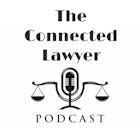The ABA recently reported that some federal courthouses ban smartphones because of fears that they could be used as weapons by terrorists. The story reports:
A memo issued last week by the Administrative Office of the U.S. Courts outlines the dangers, Wired’s Threat Level blog reports. “These common devices present security issues because some can be and have been converted for use as weapons, including explosives,†the report says.
The report explains other dangers: Smartphones can be used to secretly record or transmit videos of court proceedings, and they can be used by jurors to research case details on the Internet.
Further information can be found at in this story from Wired’s Threat Level as well as this report from the Administrative Office of the Courts.
I admit that smartphones and cell phones can be used as weapons by terrorists. So what? There are lots of items that can be used as weapons by terrorists. No location can ever be terrorists proof. Further, you can never have perfect security.
A courthouse that bans cell phones may seek to ensure that a cell phone is not used in a terrorist attack in the building. However, the policy does not prevent any other kind of terrorist attack.
Just a cell phone can be used as a weapon, does not mean it should be banned. If we were to follow this argument logically, we should also ban all writing instruments from use, heavy books from the library, and plastic ware from the cafeterias.
Attorneys carry smartphones to courthouses because they use them as tools in their practice. For some attorneys, their smartphones are one of the most useful tools in their practice. They use it for email, calendaring, and making telephone calls. Similarly jurors, who are giving up their time to serve the justice system use their phones to monitor their businesses or children when they are away.
Security is a legitimate concern. However, banning cell phones and smart phones from courthouses does not make us safer, it makes us more inconvenienced. It makes our jobs harder to do. It makes it more difficult to find good jurors. It makes it difficult for litigants to be involved in their cases. Quite simply, banning cell phones allows court officials to pay lip service to improving security without actually improving security.
The articles do not mention which courthouses currently ban cell phones. I would be curious if anyone is aware of the courthouses that do.


